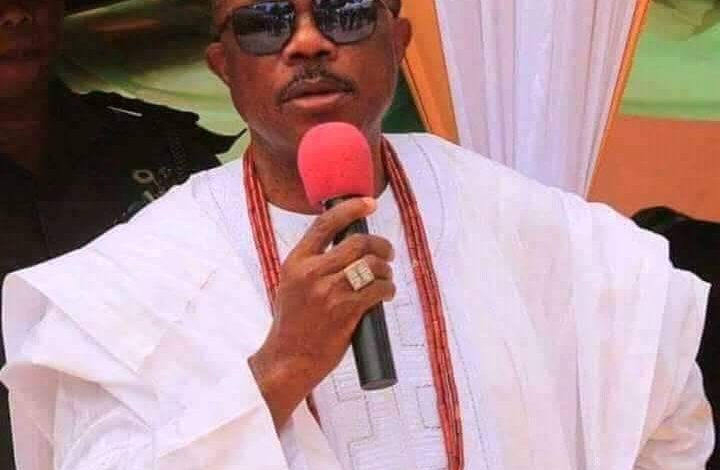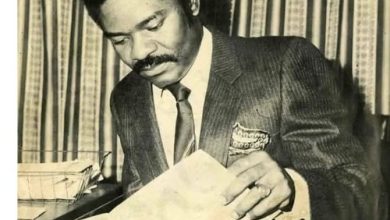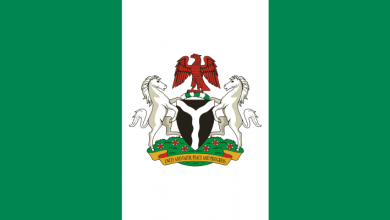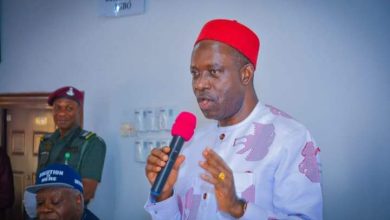
By IfeanyiChukwu Afuba
Governor Charles Soludo’s predecessor, Chief Willie Obiano had largely taken a low profile since he handed over on March 17, 2022. In the three years of post governorship, Obiano has hardly been in the news. It would appear that he has deliberately avoided the limelight, indeed taking care not to be seen as competing for attention with Professor Charles Soludo, let alone dictating to him. What does Barrister Nyesom Wike think of such display of respect, modesty, humility? Obiano, whose hair parting in younger years evoked memories of Nelson Mandela’s iconic 1960s photo, was in the news recently. At a ceremony studded with state dignitaries on Monday, April 7, 2025, Mr Governor – as Soludo prefers to be addressed – announced the renaming of Umueri airport road to Willie Obiano boulevard. The airport was one of the signature projects of Obiano’s eight year governorship. The kilometre dual carriageway was also constructed by the Obiano led government though retouched by the present administration. But the former Governor was absent at the event. He was neither represented nor sent a goodwill message. His silence, more than a week after the honour, has somewhat laced the ceremony with controversy.
It was salutary of Soludo recognising his predecessor in such a bold way. It actually takes a great mind to positively highlight one’s peers or rivals in our very competitive world. Other former Governors and indeed, other actors who in an outstanding way, advanced the fortunes of the State deserve formal recognition too. Tributes to distinguished citizens are an important element of nation – building. They are vital for keeping track of society’s journey; for refreshing the timeframe, roadmap and assets involved; and not least as appreciation for work done as well as incentive to others to strive to excel. The aspect of valuing what has been done is particularly important for us in Nigeria where vexatious irresponsibility of the ruling class often blinds to exceptions. The danger of generalised condemnation is real. But this convenient, blanket denunciation of everybody in government has the counter effect of scaring away progressives from public service. And in Anambra State’s scale of good governance, Obiano was a pace setter in many fronts. His administration witnessed enduring socio – political stability, with little or no industrial strikes in it’s eight year lifespan.
On the tangible side of development, Obiano’s leadership recorded a long catalogue of institutional breakthroughs. Obiano left a legacy of governmental initiatives and achievements, that by their multiple number, might pose difficulty of choosing which to honour him with. Samples. An investment banker, he established the Anambra Small Business Agency through which the State won national business awards. The administration built the biggest oxygen plant in the southeast at the state university teaching hospital. Anambra’s embarrassment of not having a permanent NYSC camp was taken away with one of the five best camps in the country delivered by Obiano in 2020. Mr Peter Obi’s successor not only gave Awka it’s first three flyovers but also brought a historic 16th Division of the Court of Appeal to the capital city. The administration constructed the 280m, magnificent Aguleri Otu – Aguleri Uno bridge, the longest in the southeast. Raising the profile of the long neglected capital city further, the Olympics – standard township stadium came on board. To complement the potentials offered with the debut of Anambra airport, Obiano embarked on the International Convention Centre, Awka, comparable in scope and grandeur with Abuja’s International Conference Centre built to host the OAU summit in 1991. It was the same Obiano administration that led Anambra to meet the requirements for recognition as oil producing State.
What then could account for Obiano’s cold reception of the event celebrating him? The explanation seems to lie in the divergent approach to the subject between the former Governor and the incumbent. A more critical appraisal would depict the unease as a clash of interests. Chief Willie Obiano considers the airport as the magnum opus of his governorship. It was one of his last projects and it was about the most tasking both in terms of resources and expectations. It’s a landmark infrastructure that the former Governor has strong attachment to, would want to be permanently associated with. Obiano desired to have the facility named after him. About February 2022, few weeks to the conclusion of his second term, the state executive council passed a resolution for designation of the project as Willie Obiano international Cargo & Passenger Airport. Professor Charles Soludo saw the matter differently. This is evidenced by the decision to name the airport after the great writer, Chinua Achebe. Announcing the change on October 1, 2023, Soludo stressed the need to extend state honour beyond those who sojourned in government. “An example of Africa’s unsung hero is the late Professor Chinua Achebe. Achebe was not a President or a governor or minister. He did not build bridges or roads or airports. But he will outlive most presidents, governors or ministers.” Achebe’s classics – height reputation needed no debating. The question however is how the airport pick matches the need to celebrate Achebe above other available options. Was it the best choice to make in the circumstances?
Soludo had shortly after declaring Chinua Achebe International Airport proposed calling the Awka auditorium Willie Obiano convention centre. Obiano was reportedly unmoved by the gesture, saying he had spoken his mind and it was up to the Governor what he chose to do. By that, the former Governor was referring to his preference for identification with the aerodrome. The obvious distancing from the path(s) chosen by the state government, it was learnt, stemmed from the consideration that this was the only favour sought from the successor administration. A pressure group, APGA Stakeholders Forum had in September 2023 called for the airport to be named after Obiano. Mr Tony Okafor, in an editorial in the online platform Nairaland, pitched tent with Obiano. “The recent decision to name the Anambra airport road after former Governor Willie Obiano is a gesture that while well intentioned, falls short of acknowledging his profound impact in the state’s development. Given Obiano’s profound impact, it is surprising that the airport road is the only notable project named after him. A more comprehensive recognition of Obiano’s legacy would be to name the airport itself after him, considering his instrumental role in it’s construction.” For his part, former presidential spokesman, Reuben Abati, who was recently in Anambra State as a guest of Soludo, concluded a favourable assessment of Soludo’s performance with a poser. “But why name it (airport ) after Achebe? A university would have been the right institution for Achebe’s memorial.” (ThisDay, March 25, 2025.)
Acknowledging Obiano’s immense contributions to Anambra’s fortunes is deserving. But some of us beg to differ on the airport debate. If I had my way, the airport would not bear Achebe’s name; nor Obiano’s name or any other individual. It would remain Anambra International Airport. The convention of replacing the common name of public institutions with individuals should have exceptions. Organic expressions often carry with them the seal of collective identity and care must be taken to preserve such iconic nuances. However illustrious some citizens may have proved, their recognition ought not to be at the expense of societal heritage. There are some institutions with historical and experiential significance that do not lend themselves to personalised rebranding. Anambra State airport is one such binding commonwealth. When the Owerri airport was renamed in the late 1990s from Igwebuike to Sam Mbakwe airport, I criticised the change as insensitive and unthoughtful. The Owerri airport, like the Anambra airport, was a conscious decision by the people to call the bluff of the central government’s marginalisation. Donations were offered and levies collected from Imo and Abia state citizens towards execution of the project. It was in fitting acknowledgement of the unity of purpose which transformed the enterprise from dream to reality that it was initially named Igwebuike. Translated to the power of numbers or solidarity, the expression at once evoked social consciousness and identity. Why then would any group of persons distort the beauty of collective pride in the name of immortalising Sam Mbakwe?
The Anambra airport venture travelled a similar route. It was Onitsha traders who made the demand on then Governor Jim Nwobodo in 1982 for air – link at Onitsha. The plan could not take off, until late Air Commodore Emeka Omerua, easily Anambra’s best military governor, resolved on it. Omerua’s regime located and cleared the Oba site following public fundraising. Test flights involving small aircrafts were conducted at the site soon after which Omerua was transferred to military duties. It was not until Chris Ngige’s regime that the idea was revived and rejigged to align with Orient Petroleum’s refinery plan, necessitating the present location. Peter Obi’s administration paid part of the land compensation cost. Given the chequered history of the project as well as its populist undertaking, it doesn’t seem fair to award the spotlight to any individual with name change. Omerua and Obiano could however be accommodated in the equation by naming internal departments of the complex after them.





